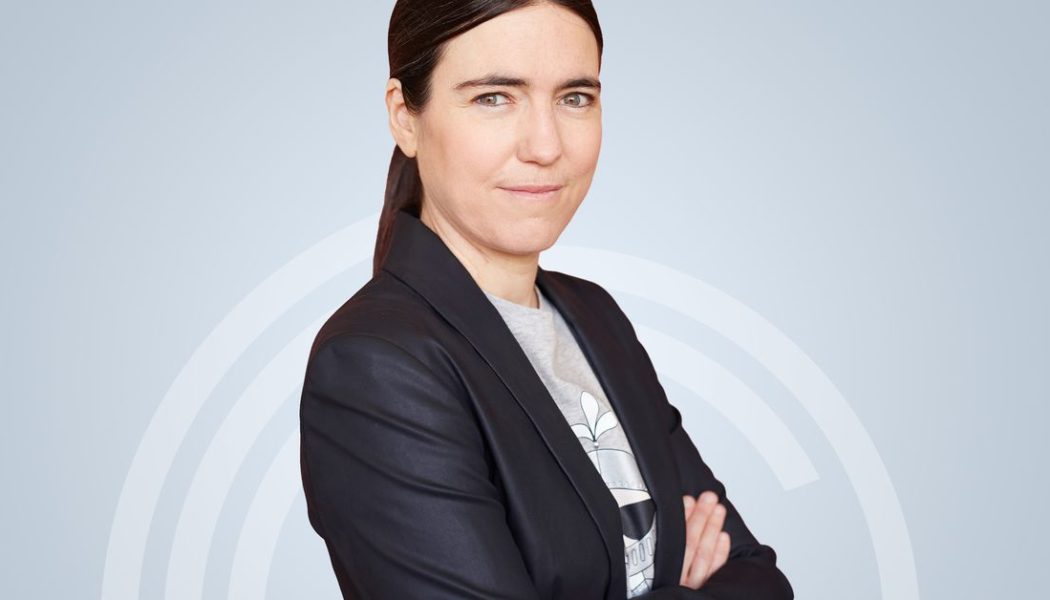
Waabi is a new autonomous vehicle startup with a few things going for it to help it rise above the fray.
For one, it’s founded by Raquel Urtasun, a renowned expert in computer vision who ran Uber Advanced Technology Group’s Toronto outpost, making it one of the few women-led AV startups in the world. Second, the Toronto-based company just came out of stealth having raised $83.5 million, which is among the largest Series A rounds ever raised in Canada.
The round was led by Khosla Ventures, with additional participation from Urtasun’s former employer, Uber, and Aurora, the AV startup that ended up acquiring Uber ATG in a deal last year. Funding was also raised from 8VC, Radical Ventures, Omers Ventures, BDC, AI luminaries Geoffrey Hinton, Fei-Fei Li, Pieter Abbeel, Sanja Fidler, and others.
That’s a pretty auspicious start for a company that’s jumping into a very crowded space with dozens of startups trying to solve what is arguably the world’s hardest problem: how to make cars and trucks drive themselves safely, reliably, and efficiently.
Waabi’s approach will be to focus on trucking, using its proprietary software to automate driving on commercial delivery routes. And with its innovative approach to simulation and machine learning, Waabi says it’s poised to commercialize its technology faster and cheaper than most of the AV startups working today.
Urtasun says her expertise in artificial intelligence, which she has been working on for over 20 years, also gives Waabi a distinct advantage. “I’ve seen really what works, what doesn’t work for AI and technology deployed in a commercial software stack,” she told The Verge.
There are two reasons Waabi is setting its sights on trucks as opposed to robotaxis or last-mile delivery vehicles. One is the “incredible” shortage of truck drivers, which Urtasun said could be rectified by the rapid deployment of fully autonomous big-rigs. The second is that highways are “simpler” than complex city streets for autonomous vehicles to navigate.
There are fears in the trucking industry that autonomous technology will lead to enormous displacement among truck drivers. A 2017 study found that automated trucks could reduce the demand for drivers by as much as 50 to 70 percent in the US and Europe by 2030, with 4.4 million of the 6.4 million professional drivers on both continents rendered obsolete. These fears are heightened as tech companies introduce eye-catching, cabin-less prototypes designed to cut the driver completely out of the equation.
Nonetheless, there’s been a mini-boom in the number of startups racing to be the first to deploy autonomous tractor-trailers. This includes well-financed companies like Waymo, TuSimple, and Aurora; OEMs like Volvo and Daimler; and a host of smaller startups like Ike (which was recently acquired by Nuro), Embark, and Plus.
Waabi’s approach will be more “AI centric” than its competitors, Urtasun says. That means a sophisticated “closed loop” simulation program that reduces the need to accrue millions of miles of testing on public roads and highways. Waabi plans on buying several trucks to test its software, but Urtasun said it won’t need more than a handful of vehicles, thanks to its innovative approach to simulation.
“So for us in simulation, we can test the entire system,” Urtasun said. “We can train an entire system to learn in simulation, and we can produce the simulations with an incredible level of fidelity, such that we can really correlate what happens in simulation with what is happening in the real world.”
Urtasun and her team are also developing a new algorithm that will serve as the foundation for the “brain” of the self-driving car, which helps with motion planning and predicting what other vehicles on the road will do so the AV can react accordingly.
“You end up with a much better scaling technology,” she added, “that you can develop much faster and much cheaper than any of the solutions out there.”
Urtasun started working at Uber in 2017, when the ride-hailing giant brought her on to serve as chief scientist and head of research and development in Toronto. Over the years, her team grew from a small group of eight graduate students to eventually around 50 people.
In Toronto, Urtasun was largely insulated from the chaos that was quickly enveloping Uber’s headquarters in San Francisco. The company’s CEO and co-founder, Travis Kalanick, was ousted a little more than a month after Urtasun’s appointment was announced. And a year later, a self-driving Uber vehicle with a safety operator behind the wheel struck and killed a 49-year-old woman in Tempe, Arizona.
An investigation into the crash faulted Uber for its lack of a robust culture of safety at its autonomous vehicle division. And late last year, Uber finally called it quits, off-loading its beleaguered Advanced Technology Group to Aurora in a bid to reduce costs and signal to investors that it had a real path to profitability. Aurora sent offer letters to about 75 percent of Uber ATG employees, according to TechCrunch — but that did not include Urtasun’s team.
There was surprise among AV sources that Aurora didn’t extend an offer to Urtasun. Today’s news helps explain why. Urtasun said her experience at Uber, including the fatal crash in Tempe, “really imprinted the importance of safety and having safety first” at Waabi. “This is also one of the reasons why we were doing a lot of our development in simulation,” she added, “to reduce also the risk of developing this technology.”
“Raquel is truly one-of-a-kind — a tenacious and inspiring leader who empowers those around her to excel,” said Dara Khosrowshahi, CEO of Uber, in a statement. “I can’t wait to see everything she accomplishes for the self-driving industry.”
In addition to her work at Uber, Urtasun is also a University of Toronto professor and the Canada Research Chair in Machine Learning and Computer Vision as well as the co-founder of the Vector Institute for AI.
Urtasun said she chose the name “Waabi” because it had a couple of relevant meanings. Among Canada’s First Nations tribes, it means “she has vision,” while in Japanese, it translates as “simple.” The first speaks to Urtasun’s expertise in computer vision and artificial intelligence, while the latter to her company’s intent to simplify the technology that powers self-driving vehicles.
It is rare for an autonomous vehicle startup to have a woman founder and CEO, but Urtasun says she hopes to inspire other women to join the industry. “This is a field that is very dominated by white dudes,” she said. “The way to build integrating knowledge is to build technology with diverse perspectives, because by challenging each other, we build better things.”










